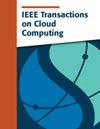psvCNN: A Zero-Knowledge CNN Prediction Integrity Verification Strategy
IF 5.3
2区 计算机科学
Q1 COMPUTER SCIENCE, INFORMATION SYSTEMS
引用次数: 0
Abstract
Model prediction based on machine learning is provided as a service in cloud environments, but how to verify that the model prediction service is entirely conducted becomes a critical challenge. Although zero-knowledge proof techniques potentially solve the integrity verification problem, when applied to the prediction integrity of massive privacy-preserving Convolutional Neural Networks (CNNs), the significant proof burden results in low practicality. In this research, we present psvCNN (parallel splitting zero-knowledge technique for integrity verification). The psvCNN scheme effectively improves the utilization of computational resources in CNN prediction integrity proving by an independent splitting design. Through a convolutional kernel-based model splitting design and an underlying zero-knowledge succinct non-interactive knowledge argument, our psvCNN develops parallelizable zero-knowledge proof circuits for CNN prediction. Furthermore, psvCNN presents an updated Freivalds algorithm for a faster integrity verification process. In terms of proof time and storage, experiments show that psvCNN is practical and efficient. psvCNN generates a prediction integrity proof with a proof size of 1.2MB in 7.65s for the structurally complicated CNN model VGG16. psvCNN is 3765 times quicker than the latest zk-SNARK-based non-interactive method vCNN and 12 times faster than the latest sumcheck-based interactive technique zkCNN in terms of proving time.psvCNN:零知识 CNN 预测完整性验证策略
在云环境中,基于机器学习的模型预测被作为一种服务提供,但如何验证模型预测服务是否完全进行成为一个关键挑战。尽管零知识证明技术有可能解决完整性验证问题,但当应用于大规模隐私保护卷积神经网络(CNN)的预测完整性时,证明负担过重导致实用性较低。在这项研究中,我们提出了 psvCNN(用于完整性验证的并行分裂零知识技术)。psvCNN 方案通过独立拆分设计,有效提高了 CNN 预测完整性证明中计算资源的利用率。通过基于卷积核的模型拆分设计和底层零知识简洁非交互知识论证,我们的 psvCNN 开发出了用于 CNN 预测的可并行零知识证明电路。此外,psvCNN 还提出了一种更新的 Freivalds 算法,以加快完整性验证过程。在证明时间和存储方面,实验表明 psvCNN 是实用而高效的。对于结构复杂的 CNN 模型 VGG16,psvCNN 在 7.65s 内生成了证明大小为 1.2MB 的预测完整性证明。
本文章由计算机程序翻译,如有差异,请以英文原文为准。
求助全文
约1分钟内获得全文
求助全文
来源期刊

IEEE Transactions on Cloud Computing
Computer Science-Software
CiteScore
9.40
自引率
6.20%
发文量
167
期刊介绍:
The IEEE Transactions on Cloud Computing (TCC) is dedicated to the multidisciplinary field of cloud computing. It is committed to the publication of articles that present innovative research ideas, application results, and case studies in cloud computing, focusing on key technical issues related to theory, algorithms, systems, applications, and performance.
 求助内容:
求助内容: 应助结果提醒方式:
应助结果提醒方式:


